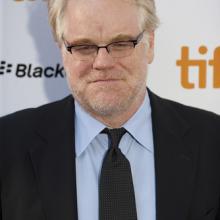drug addiction
I almost gave up on my drug-addict mother. But then I discovered that God never gives up.
In memory of Dorothy Molex (my mom), Philip Seymour Hoffman, and the countless others who battle the demons of addiction.
“What are you arguing with them about?” he asked. A man in the crowd answered, “Teacher, I brought you my son, who is possessed by a spirit that has robbed him of speech. Whenever it seizes him, it throws him to the ground. He foams at the mouth, gnashes his teeth and be- comes rigid. I asked your disciples to drive out the spirit, but they could not.” (Mark 9:16-18)
I never thought the Bible had anything to say about addiction. It’s not something that I ever heard preached or read in the Bible. As someone who grew up in a household with an addicted parent, I wanted answers, but church didn’t provide them and the Bible appeared to be silent — until I decided to read this story through the lens of my life and personal experiences.

But one thing has not changed even a little bit is the human condition. Parts of the Bible can feel hard to relate to until you get to a thing like this reading from Romans 7, in which Paul says, "I do not understand my own actions. For I do not do what I want, but I do the very thing I hate. I can will what is right, but I cannot do it. For I do not do the good I want, but the evil I do not want is what I do."
Finally. Something I can relate to. This I know about. I too do not understand my own actions. I too can't manage to consistently do what I know is right. Paul's simple description of the human condition is perhaps a most elegantly put definition of what we now call addiction.
It's no secret that I am a recovering alcoholic. By the grace of God I have been clean and sober for more than 19 years. But, boy, do I remember that feeling of powerlessness that comes from not being able to control your drinking. I'd wake up each morning and have a little talk with myself: "OK Nadia, get it together. Today is going to be different. You just need a little will power." Then, inevitably, later that day I'd say, "Well, just one drink would be OK," or, "I'll only drink wine and not vodka," or, "I'll drink a glass of water between drinks so that I won't get drunk." And sometimes it worked, but mostly it didn't. In the end, my will was just never "strong enough" Like Paul, I did the thing I hated. But that's addiction for you. It's ugly. Yet on some level I feel like we recovering alcoholics and drug addicts have it easy. I mean, our addictions are so obvious. The emotional, spiritual, and physical wreckage caused by alcoholism and drug addiction has a certain conspicuousness to it.
Despite the ongoing catastrophe of nuclear reactor meltdowns following last spring's earthquake, the Japanese people remain largely supportive of nuclear energy.
